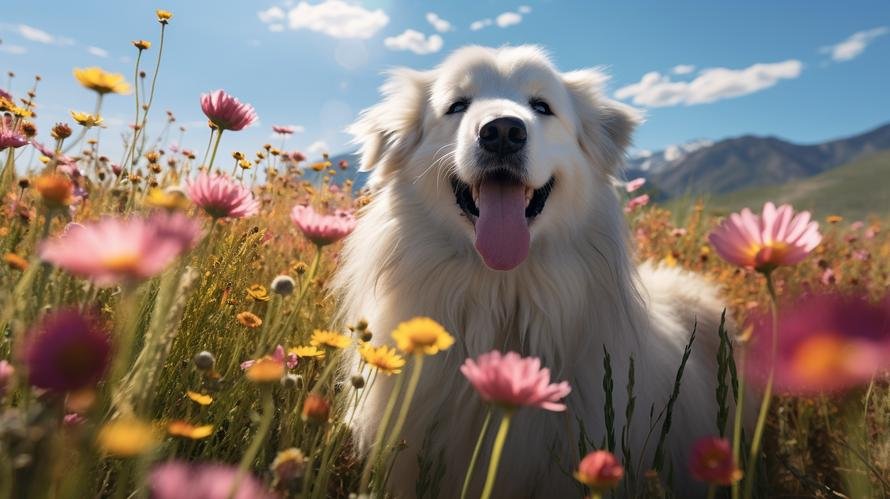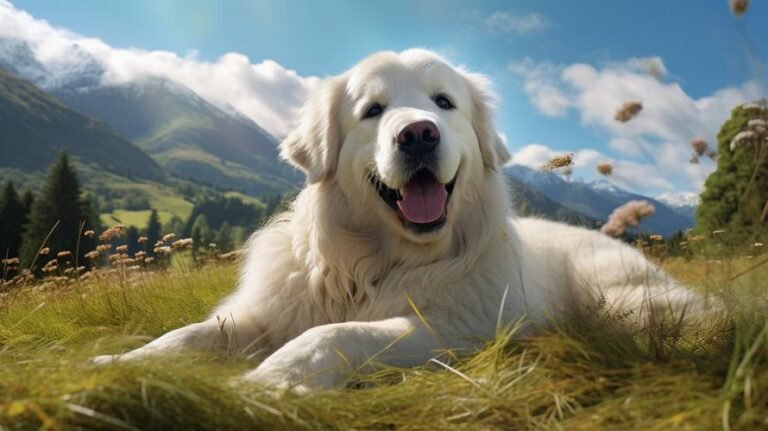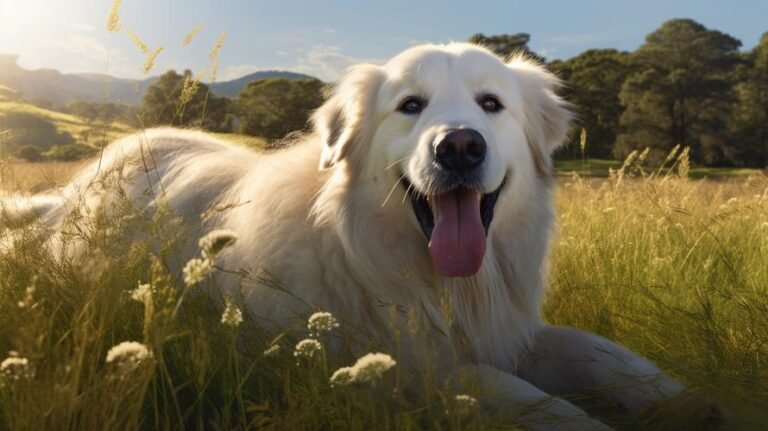The Great Pyrenees, known for their majestic and regal looks, are a breed apart. But did you know that behind their royal-looking exterior, they house a heart that murmurs melodious tales of valor and endurance? In fact, these floofy guardians were trusted with the mighty task of protecting livestock in the icy Pyrenees mountains of France and Spain. But here’s the kicker – this duty demands not just exceptionally sharp instincts but also an enormous amount of energy.
Now, you may be asking where did these majestic beasts get their energy from? Was it the magical aura of the mountains, their sheer tenacity, or was it something as basic yet crucial as – their diet? If you guessed the latter, you hit bullseye! These dogs are not only known for their elegant stature but also their unique dietary needs.
If you happen to be a lucky pet parent of a Great Pyrenees or are planning to be one, it’s important to remember these dogs need more than just an ordinary dog food. Their diet plays a fundamental role in preserving their health, maintaining their glossy white coat, and ensuring they live a long and hearty life.
The Great Pyrenees are not a one-meal-fits-all breed. They need special nutrition to meet the race against their mammoth energy consumption and larger than life stature. But, you might wonder, what makes their diet so special?
Plainly said, the Great Pyrenees are big dogs with an even bigger heart. Weighing in between 85-100 pounds on average, these imposing and gentle giants need a diet rich in protein to support their significantly larger musculature. This protein-packed diet not only aids in healthy growth and development, but it also helps in tissue repair and maintaining overall health.
Moreover, their fluffy and lush coat isn’t just for the show – it serves as their shield against harsh weather conditions. To keep this coat healthy and gleaming, Omega-3 and Omega-6 fatty acids are indispensable. Now, how do you ensure that your Pyr gets enough of these? A diet supplemented with fish and flaxseed oils can be your answer.
Another factor that sets these beautiful beasts apart is they tend to be more living-room-lions than yard-dogs. Love a good laid-back day on the couch? Your Pyr will happily join you. However, this means that they are prone to gaining weight faster than more active breeds. A calorie-controlled diet ensures they maintain a healthy weight without compromising on the required nutrition.
This cautious balance between adequate nutrients and calorie control isn’t usually found in regular dog food. No, it isn’t a marketing gimmick to get you to spend more money, but a well-researched approach to cater to your Pyr’s unique dietary necessities. But don’t fret! Many dog food manufacturers consider these specific needs and create recipes just right for your gentle giant.
Food geared towards large breed dogs, rich in protein, and formulated with controlled calories can make for an ideal diet for your Great Pyrenees. Plus, variations with added nutrients like omega fatty acids, glucosamine, and chondroitin serve as a cherry on top.
Remember, your dog’s stomach is the way to their happiness, much like us humans. But it is more than just filling them up. Understanding the excitably unique world of the Great Pyrenees’s nutritional needs not only ensures their happy wagging tails but also helps them live a healthier life. By serving them something as essential yet special as their diet, you’re giving them a plate twirling with love, care, and nourishment.
Being a companion to these loyal, kind-hearted, and shield-like creatures is a joy and a privilege. A joy, especially, when you see your Pyr healthy, frolicking about with valor and vigour, all credits to the carefully crafted diet meeting their special needs.
Now, as a proud pet parent, you have a secret recipe clicking with all the nutritional checks – a perfect balance of protein, fats, and controlled calories. This isn’t just a meal you serve in the dog bowl, it’s your love served in its purest form. After all, a healthy Pyr is a happy Pyr!



